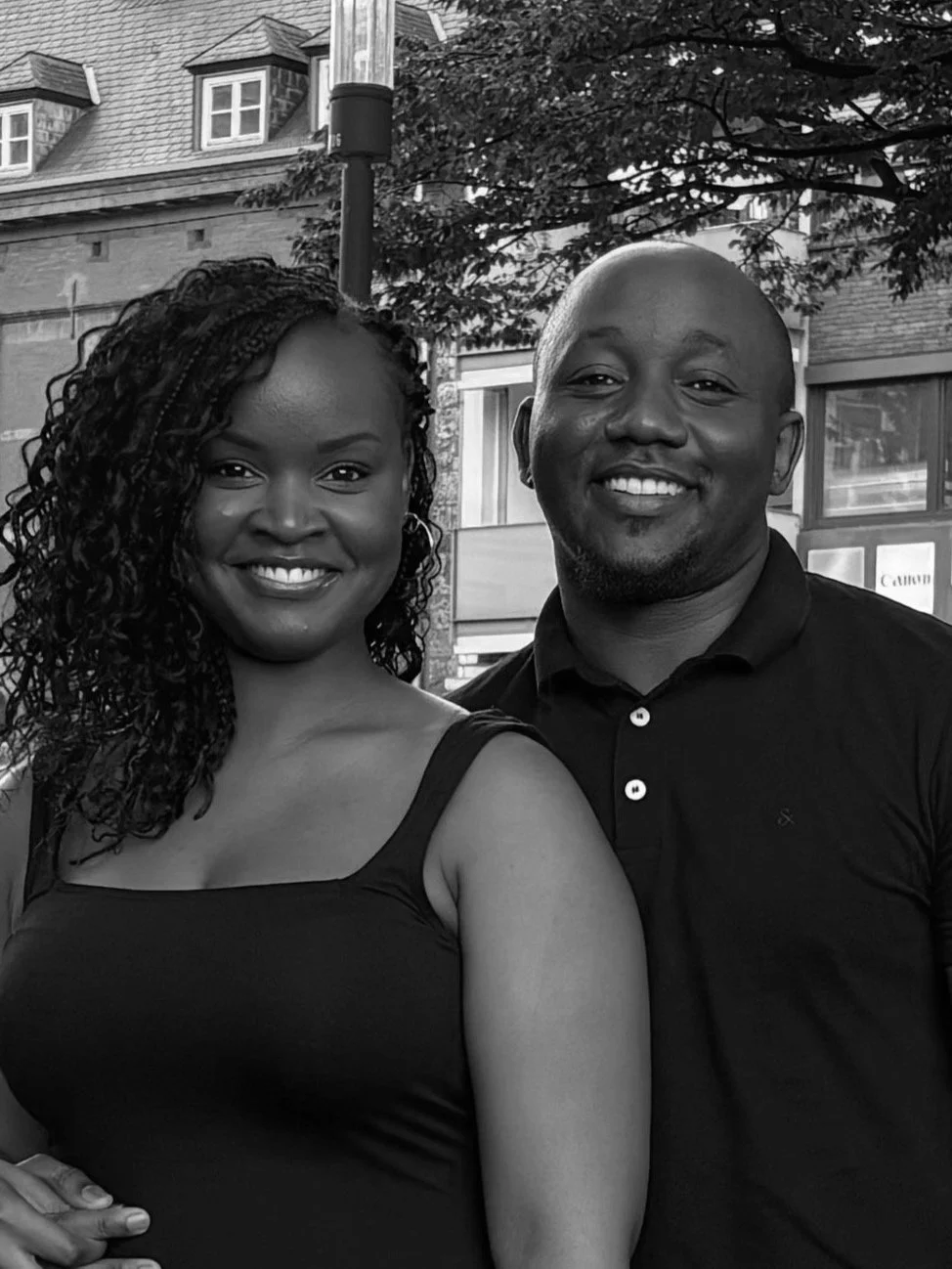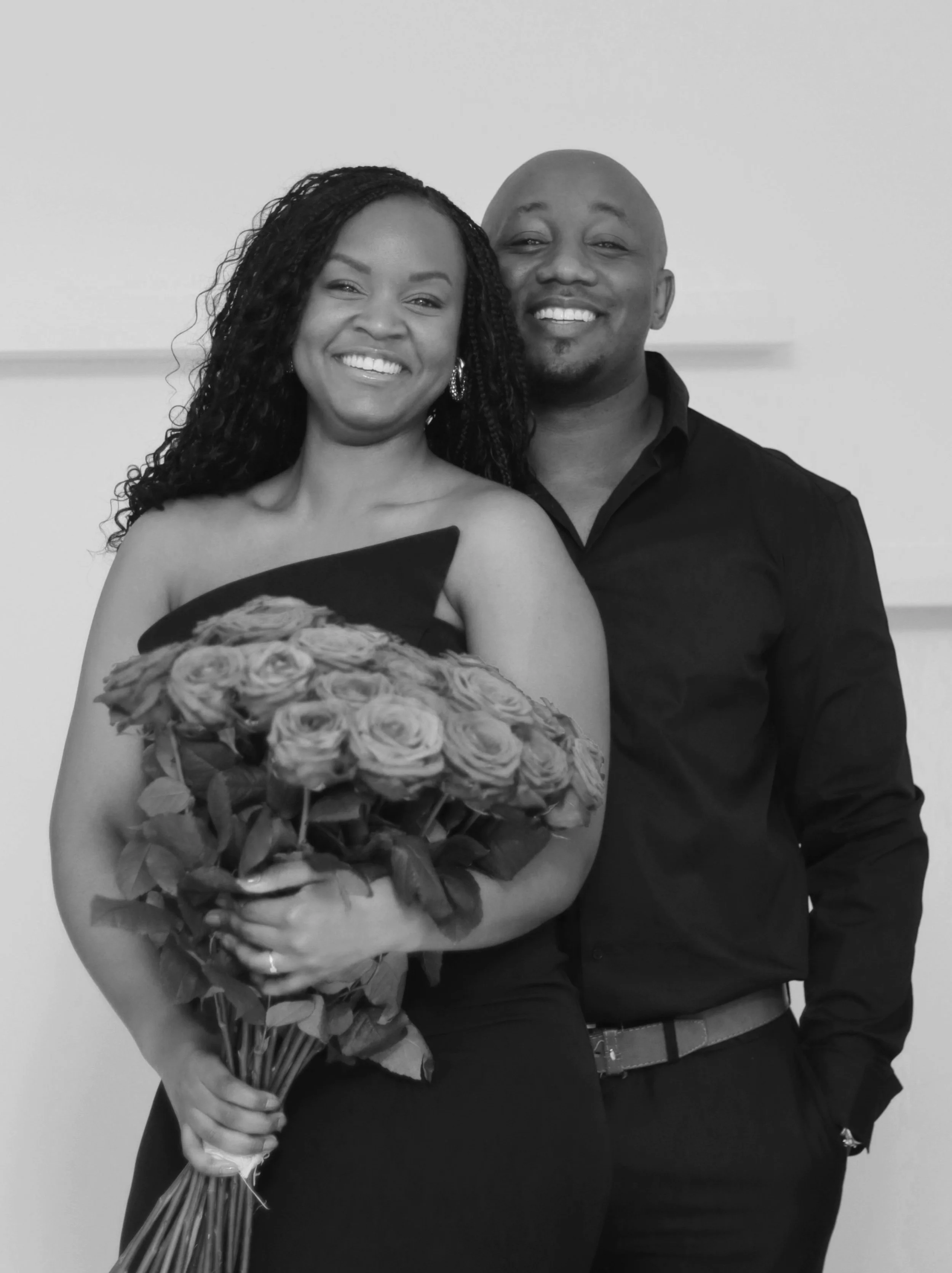The Traditional Bashi Wedding
A celebration of love and unity
´As we embark on this beautiful journey together, we want to share the rich traditions that make our union so special. Our wedding is not just about the two of us—it is a celebration of love, family, and heritage`.
Two Cultures, One Love
Tafadzwa comes from the Shona tribe of Zimbabwe, while Jenny belongs to the Bashi tribe of the Democratic Republic of Congo. In both cultures, it is custom for the traditional wedding to be conducted according to the brides’ tradition. That is why this traditional wedding will be a Bashi celebration, honoring the customs of Jenny’s ancestors and bringing both of their families together in a meaningful and beautiful way.
A Tradition of Love and Unity
Among the Bashi people of the eastern Democratic Republic of Congo, marriage is more than just a union between two individuals—it is a sacred bond that unites families, strengthens communities, and upholds cultural traditions passed down through generations.
More Than Just a Wedding—A Unifying Bond
For the Bashi people, marriage is a foundation for strong family ties, friendship, and lasting alliances. It is a celebration of unity, ensuring that both families remain connected through shared values and traditions and ensuring that the couple’s love story is built on a strong and cherished foundation.
The wedding is not only a personal milestone but a communal event, where relatives, neighbors, and friends gather to witness and honor the sacred commitment being made.
Central to this tradition is the dowry, or ngulo—a gift from the groom’s family to the bride’s family, typically consisting of cattle, a symbol of prosperity and continuity. This is not a commercial transaction but rather a gesture of goodwill, gratitude, and appreciation for the new bond being formed.
The Dowry Process: Steps to Marriage
Traditional Bashi marriage is a process that begins with two people and ultimately encompasses both families. The marriage follows a well-structured process, ensuring that the union is recognized and celebrated by both families. The key stages include:
Meeting and courtship – The young lady and young man meet, fall in love, build their relationship, and decide to marry.
Announcement to the young lady’s family – The young lady informs her family about her chosen partner, allowing them to prepare for the marriage discussions.
First visit to the young lady’s family – The young man visits the young lady’s family to formally express his interest in marriage. This is known as the "presentation visit." and marks the official engagement of the couple.
Parental introduction and dowry proposal – The fiancé’s family returns for a formal introduction, where they present their dowry proposal (ngulo), often consisting of cattle (cows and goats) and other symbolic gifts.
Dowry negotiations and agreement – At this stage, both families agree on the dowry. This exchange is balanced and meaningful ensuring that their union is based on mutual respect and understanding. All agreements are made on the basis of trust and are verbal, because for the Bashi “a man is his word”.
6. Traditional wedding ceremony - the ceremony is divided in two parts.
Presentation of the dowry
The two families meet again to great joy. The agreed dowry is officially presented, accompanied by song and dance. Made up mainly of cows, the dowry is symbolically presented in the form of cords, according to the number of cows agreed. The groom's family places the cords in a basket and other gifts are also presented.
Handing over the dowry - the highlight of the ceremony!
As a sign of her agreement, the bride herself takes the basket presented by the groom's family and hands it over to her father. This is followed by a blessing from her parents. Finally, the bride's brother officially hands her over to the groom and his family, accompanied by words of blessing, love and encouragement.
7. Traditional wedding celebration - Once all the steps have been completed, the couple is celebrated with music, dance and a grand feast. Join us for this celebration on August 30, 2025 in Stuttgart!



